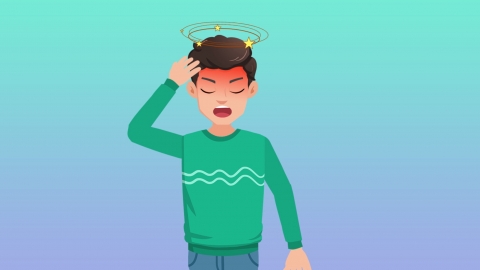My scalp hurts when pressed but doesn't hurt when left alone. Why is this happening, and what should I do?
Pressing on the scalp causes pain, but there is no pain when not pressing. This may be caused by factors such as head muscle tension, trauma, tension headaches, scalp allergies, or seborrheic dermatitis. Symptoms can be relieved through daily care, medication, and other methods. If physical discomfort occurs, it is recommended to seek medical attention promptly. The analysis is as follows:

1. Head muscle tension: Muscle tension in the head may result from poor posture, prolonged sitting, eye strain, etc. Improving sitting posture, performing moderate neck and head exercises, and taking regular breaks to rest the eyes can help alleviate this condition.
2. Trauma: Impact or external force on the scalp—such as from a blow, fall, or other injury—may cause soft tissue damage, including capillary rupture and hematoma formation, leading to pain. For mild injuries, cold compresses can help reduce swelling and pain.
3. Tension headache: Prolonged stress, anxiety, or pressure may lead to tightened scalp muscles, causing scalp pain. Relief methods include relaxation techniques such as deep breathing and meditation, as well as regular physical activity to reduce tension.
4. Scalp allergy: Allergic reactions to shampoos, hair care products, or other chemicals may cause scalp pain. Avoid using products that may trigger allergies and opt for those formulated for sensitive skin. If necessary, take antihistamines such as cetirizine hydrochloride tablets, loratadine tablets, or ebastine tablets as directed by a physician.
5. Seborrheic dermatitis: Seborrheic dermatitis may be associated with excessive shampooing, hormonal imbalances, and other factors. In severe cases, it may cause scalp pain, often accompanied by hair loss, itching, and other discomforts. Using gentle shampoos, maintaining scalp cleanliness, and avoiding over-washing may help relieve symptoms.
In daily life, choose mild shampoos suitable for sensitive scalps and avoid products with excessive chemical ingredients. Gently massaging the scalp can promote blood circulation, relieve muscle tension, and help reduce headache sensations. Learning relaxation techniques such as deep breathing and meditation can also help alleviate stress and anxiety.




